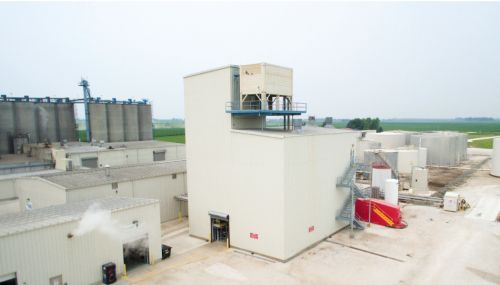All
Lock Your Propane Tanks to Unlock Your Cash Flow
by Rich Morahan

Mike Green, of Green’s Propane Gas, Smiths Station, AL, is committed to locking his propane tanks. He has invested in tank locks to control his tanks and enhance his cash flow. “Lock America’s filler valve lock will pay for itself by preventing delinquent customers from going to other suppliers and protecting our tanks from tampering.”
A locked tank was once a relatively new concept for the propane industry, but the concept has been around for decades, in another industry. Most of us know how self-storage works, even if we learned about it from Storage Wars. If you don’t pay your bill, they lock up your stuff.
That’s the concept that led Frank Minnella, CEO of Lock America, Corona, CA, to leverage his knowledge of self-storage “lock out” locks for propane tanks. He asked his propane dealer, “What happens if I don’t pay my bill?” The answer: “We stop delivering,” which in most cases leads to lost revenue — revenue that winds up flowing to a competitor.
Building on 30 years’ experience developing security products for self-storage, Frank and his partner, Steve Shiao, along with his propane dealer, developed the Fill Valve Lock and the POLock. There had been some padlock and “clamshell” products in the market, but these were the first locks designed specifically for propane tanks. To this day, they remain the only ones built for this application.
Wake-Up Calls and Leased Tanks
Bill Pohlhaus, of Tevis Oil, Inc. of Hempstead, MD, considers the POLock and Fill Valve Lock revenue enhancers and asset protectors. His company employs the POLock to shut down the output valve of delinquent customers’ tanks. Bill calls the lock a “wake-up call” that usually brings customers up to date on their bills.
The Fill Valve protects Tevis’s investment in leased tanks. In virtually all states, propane tanks are owned and maintained by the propane company, and propane customers’ contracts prohibit other companies from filling the tanks. In Pohlhaus’s state, it is actually against the law for any company to fill another company’s propane tanks. The Fill Valve lock enforces the law, providing two added benefits: the lock ensures that Bill’s customers stick to their contract to buy their fuel from him, and it also protects him against potential liability from an unqualified outside agent interfering with his tanks.
Steady Growth in Propane
Ray Murray, Inc. (RMI), of Lee, MA, has distributed the Fill Valve Lock and POLock for nearly five years. Sales have grown steadily for these new concept locks engineered specifically for propane tanks. They outsell other locking products, which typically consist of a standard padlock and a metal clamp, or “clamshell.”
John Murray, Vice President and LP Product Manager for RMI, believes that the industry-focused design and unique key code each Lock America customer receives are significant benefits. Only the authorized propane driver or company representative can open the Fill Valve Lock or POLock.
From Lock Out to Roll Out
Mike Svoboda, of Axmen Propane, Missoula, MT, installed the locks to protect his investment. “Competitors were filling our tanks, especially when properties changed owners,” he says. “The solution to the problem was the Lock America Fill Valve and POLock. With one registered key code, the driver can secure every leased tank on his route, and ensure that Axmen Propane is the only dealer who puts propane in our leased tanks, protecting our business and our customers against private dealers, which in the end protects our investment.”
Initially, propane dealers employ the tank lock to cut off delinquent customers, but many dealers expand its use. As Bill Green says, “I started locking up my ‘Will Calls,’ then the automatics, and now I’m rolling the lock out to all my new tanks. The stickers on our tanks would occasionally disappear when a customer had a past due bill or an unscrupulous company appeared. But with the lock, there are no discussions, no arguments, just bills settled before delivery.”
Brian Wanner, of Silvertip Propane, Billings, MT, has a similar story. “We were losing business when customers shopped around for credit. Now we lock the fill valve and the outlet valve when they owe us money. Profits are up. We’re putting locks on all our new tanks, and gradually rolling them out to our entire industry.”
Protection Against Potential Liability
The POLock can also protect a propane supplier against a customer who could cause an accident by trying to access a secured tank.
Two multimillion-dollar lawsuits indicate just how much propane tank accidents can cost. When a Louisiana gas supplier was sued for damages caused by an explosion, a jury held the company liable, even though it had put what it considered a secure outlet plug device on the tank before it exploded.
The customer apparently had little difficulty removing the device with a wrench, eventually resulting in a devastating explosion. The jury determined that the propane company had made an inadequate effort to secure the disconnected gas line and protect its customer. An unsecure outlet valve plug and a simple red warning label couldn’t prevent the customer from reconnecting the gas line, or protect the company from the resulting liability.
The judgment concluded that any device “that can be opened with ordinary household tools could not be considered a locking device.”
A second case dealt with an Indiana propane gas dealer that chose to disconnect a half-full tank and secure it with just a warning label and an outlet plug device. The plaintiff in this case claimed damages even though he had tampered with the outlet plug device. After removing the device, the plaintiff reconnected the tank by himself, which led to an explosion that seriously injured a number of people.
And surprise: he then sued the propane company, apparently for not protecting him from … himself.
In that case, the court ruled that the company “owed general duty of reasonable care to any person who might be injured by its propane.” Even though the court acknowledged that the outlet valve plug “was mysteriously removed and the gas line was mysteriously reconnected,” it denied the company’s request for summary judgment.
Both cases show that relying on an unsecure outlet valve plug and a red warning label can lead to a lawsuit. And even if the propane dealer prevails, legal fees can be costly.
Protect Revenue and Assets
The Fill Valve Lock and The POLock keep the propane dealer in control of its tanks, by keeping competitors out and preventing customers from tampering, thereby protecting the dealer’s business and the customers’ safety. A company can start out with a “lock out” program to control delinquencies and slow pays, or it can lock all of its tanks to enforce its contracts. Either way, propane tank locks pay for themselves.
Rich Morahan owns Richard Morahan Associates, and writes frequently about security and marketing for propane and other industries, including information management, petroleum distribution and self-storage. You can contact him at 617-240-0372, or go to www.rmorahan.com. For information on the Fill Valve and POLock, go to www.laigroup.com or call 800-422-2866.
Related Posts
 Why Quality Matters in Your Biofuel Blends
Why Quality Matters in Your Biofuel Blends
Posted on June 25, 2025
 HEAT Show Gears Up
HEAT Show Gears Up
Posted on June 25, 2025
 What’s Next in Boiler Technology
What’s Next in Boiler Technology
Posted on June 25, 2025
 How Intelligent Are Your Integrated Customer Platforms?
How Intelligent Are Your Integrated Customer Platforms?
Posted on June 25, 2025
Enter your email to receive important news and article updates.
